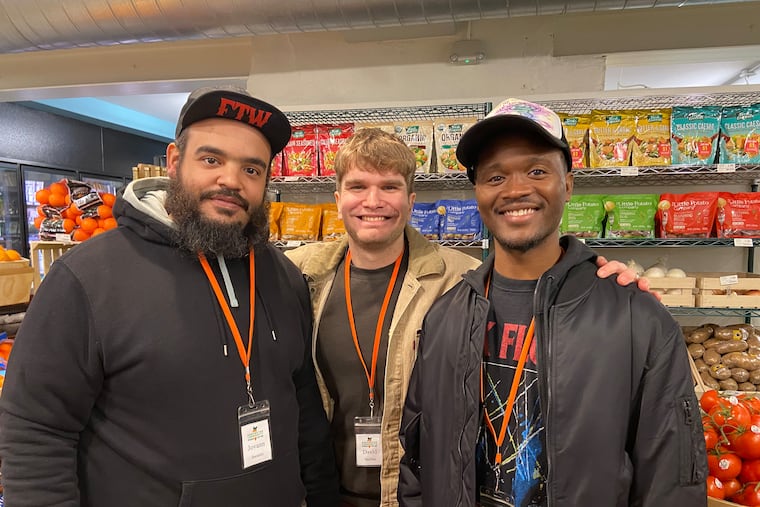What’s new at the Kensington Community Food Co-op? Almost everything.
After a last-ditch call for crowdfunding and a four-month shutdown to reconfigure the operation, the Kensington Community Food Co-op has just re-opened.

First question: “Do you know why we have the bananas by the front door?”
Dennis Hanley, interim general manager, doesn’t just talk to visitors about the Kensington Community Food Co-op’s restart — he quizzes them.
The answer: To win in the grocery business, you must impress customers with good prices. And nothing does that better than banana prices.
That’s why strategically placed bananas are piled high at a price so low Hanley is betting shoppers will give KCFC another chance. The store reopened on Jan. 31, and if that first weekend’s results are any indication, KCFC will survive.
Late last year, KCFC president Nadia Schafer wrote members that the co-op, after three years of sagging sales, was at the brink of death — and its mission to provide heathy food in Kensington, support local vendors, and host community-building events would grind to a halt unless co-op members raised at least $200,000 stat.
“We have reached a breaking point,” wrote Schafer.
About 800 donors rallied, giving $204,750. It was enough to hire Hanley, a co-op food consultant who has worked in the grocery industry for 47 years and has turned around 27 stores. His initial assessment of KCFC was blunt and bleak. “Everything was wrong,” he said.
» READ MORE: In a ‘modern-day Rocky story,’ members step up to save Kensington Community Food Co-op
Second question: What are three things a food store has to get right to survive?
Hanley repeats the answer often — the right product mix, high-quality customer service, and the right price. “I’ve seen stores miss two out of three. KCFC was missing on three out of three,” Hanley said of his initial store assessment.
Founded in 2008, KCFC took a decade to find and renovate an appropriate space. Even with volunteer labor, cost overruns almost closed the store before it finally opened in 2019. But sales never took off. Hanley said the most significant problem was the high price point for products that didn’t reflect the store’s large Puerto Rican and African American community.
He shuttered the store, donated products they couldn’t sell, and renegotiated with vendors to stock new products — many from within 100 miles of the store. On opening day, he offered savings including a deep discount on eggs at $3.49 a dozen, which brought in steady business.
“The number-one hit is bulk nuts at one-third the price.”
“We sold 18 cases of eggs when in the past, we would sell one case a week. The number-one hit is bulk nuts at one-third the price,” said Hanley with unabashed delight.
Hanley also hired a new bilingual team of locals to improve customer service. Jovann Suarez, the security officer, and Jalen Bennett, the business manager, have both lived in Kensington. Grocery manager David Tortajada Fernandez, who moved from Barcelona to Philadelphia for love, now lives within walking distance of the store. Hanley said 67% of the store’s staff is BIPOC.
Even with a successful first round of fund-raising, it quickly became apparent that $50,000 more was needed to ensure operating capital to keep the co-op from closing as soon as it opened. Hanley says there are still product gaps and says that it results from being undercapitalized.
“We know we have more we want to achieve and hope to be able to expand our offerings even more throughout 2023,” Schafer said. She told co-op members that fund-raising would have to continue.
The KCFC board has just started searching for a permanent general manager that can bring the volume needed to sustain the business. Despite the promise of the first weekend, the store was mostly empty during a recent weekday evening visit.
Hanley answered even before asked. “I can’t have three employees and no customers. That’s not sustainable.”
The Philadelphia Inquirer is one of more than 20 news organizations producing Broke in Philly, a collaborative reporting project on solutions to poverty and the city’s push toward economic justice. See all of our reporting at brokeinphilly.org.